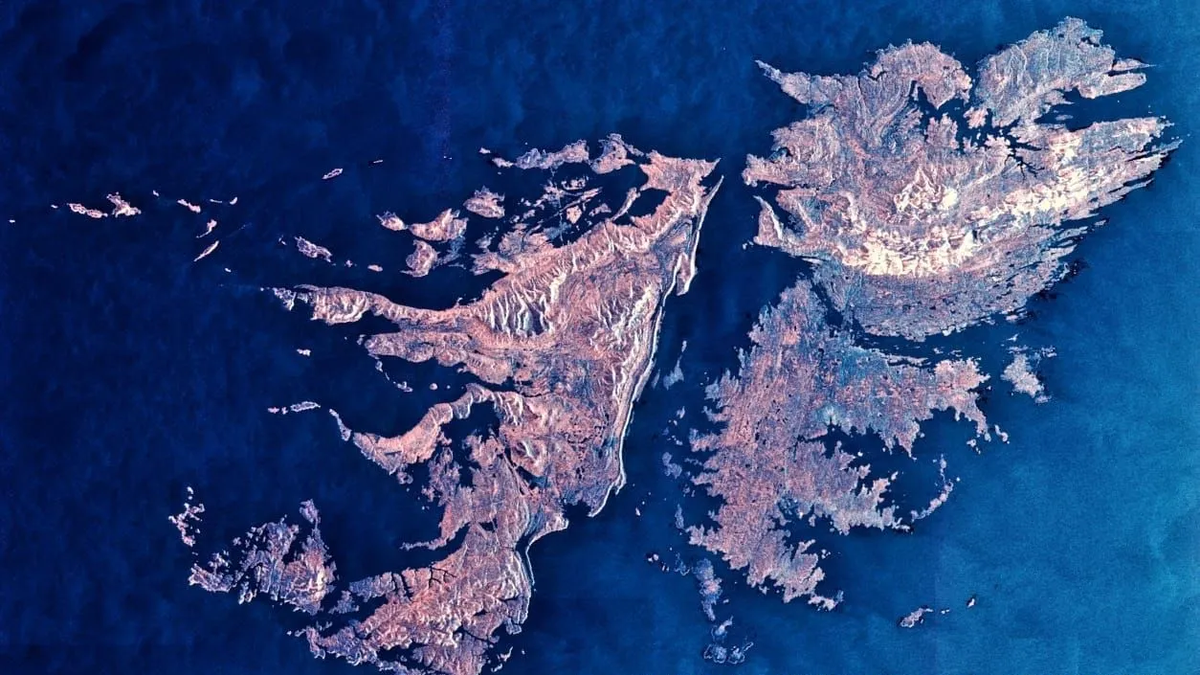Published in Guardianthe article attacks the fact that the United Kingdom continue to have control over Falkland Islands. The fact is that, just a week ago, the European country handed over the sovereignty of the Chagos Archipelago to the Mauritius Islands. Inevitably, this situation caused both disputes to be compared to each other.
Subsequently, the author reviews the 14 territories that politically They still belong to the British governmentalthough territorially they should not. They are all from overseas.
Thus, the journalist defines: “During the last half century, many territories, such as Belize, Tuvalu, the Seychelles and the Bahamas, have gone silently slipping towards independence. Others have remained ‘dependent’ on the king, with British citizenship and protection.”
“The cost of some has been eased because Britain has allowed them to become, after the Gulf states, the world’s largest havens of illegal wealthwithout origin and without taxes. They are a threat to the public coffers of the world,” he mentions about the situation in the Caribbean countries.
He then goes on to claim that these businesses “deprive British (and other) taxpayers of billions of dollars in revenue each year. The power of the London banking lobby is such that no government dares to touch them. “Rachel Reeves’ £22bn ‘black hole’ actually exists somewhere between the Cayman Islands and the British Virgin Islands.”
From there, he proceeds to introduce the theme of other “two dependencies that continue to be problematic”, to refer to the Malvinas, still claimed by Argentina, and Gibraltar, for which he is currently in full conflict with Spain.
Regarding this last territory, he maintains: “That Great Britain has allowed Gibraltar, taken as a military base in 1704, to sour relations with Spain since then. It’s more than absurd”.
“Of course, the citizens of the colony like their low-tax enclave, but This British Monaco is geographically part of Spain. Some agreement on sovereignty should surely have solved this by now,” he concluded.
In April of last year, David Cameronthe then British Chancellor was negotiating, in theory, an agreement for the southern Spanish territory. However, this appears to have backfired.
The defense of the Malvinas Islands
Already referring directly to the Falklands, Jenkins begins by referring to the aforementioned comparisons with the Chagos Archipelago. Given these parallels, the chancellor Stephen Doughtychose to “once again dismiss Argentina’s repeated demand for the transfer of sovereignty of the Malvinas.”
“What is generally forgotten is that before the Argentine invasion in 1982the government of Margaret Thatcher was negotiating a transfer, despite the concern expressed by the islanders,” says the journalist, adding: “As in the case of Hong Konghistory and geographical proximity made an agreement common sense, possibly with the presence of the UN guaranteeing the self-government of the islanders.”
Then he questions how the military junta of the South American country shattered the negotiations, referring mainly to Leopoldo Galtieri: “Only the reckless action of the Argentine military regime ruined the talks. But that was 42 years ago.”
“Defending the 3,600 inhabitants of the islands now costs Britain around £60 million.” [unos 78 millones de dólares] per year. This is unjustifiable,” questions the Guardian writer.
Likewise, he then refers to the undeniable proximity between the islands and Argentina: “The only future for the islands that makes economic sense is on their adjacent continental territory.”
“If Thatcher could see this in 1982 – as she later saw the need to decolonize Hong Kong – why can’t Keir Starmer see it today? Instead, it wants to spend money pretending to be an empire in both the Indian Ocean and the Atlantic,” the author launches. “Delusions of grandeur never cease,” Jenkins concludes in his article.
The case of the Chagos Archipelago
The dispute over Chagos Archipelago goes back to the 1960s and 1970speriod during which the United Kingdom expelled the native population of the islands to establish the British Indian Ocean Territory (BIT), even though Mauritius had achieved its independence in 1968. This act was considered a crime against humanity according to various international organizations.
Despite the resolutions of the UN and court rulings urging the United Kingdom to return the islands, the British government initially dismissed these rulings, arguing that the court’s decision International Court of Justice was merely a “advisory opinion”.
Negotiations to end this controversy began in 2022, and although there were attempts to interrupt them on the grounds that the Chagossians were not consulted, Those efforts were not successful..
The agreement reached today represents a relevant advance in the resolution of this prolonged colonial conflict. As the situation develops, The international community is expected to pay greater attention to territorial claims in the context of decolonization and people’s rights, which could influence other similar cases, such as that of the Malvinas.
This new development could also open a path for broader and more constructive dialogue between the nations involved, promoting an approach that favors justice and respect for affected populations.
Source: Ambito
I am Pierce Boyd, a driven and ambitious professional working in the news industry. I have been writing for 24 Hours Worlds for over five years, specializing in sports section coverage. During my tenure at the publication, I have built an impressive portfolio of articles that has earned me a reputation as an experienced journalist and content creator.




